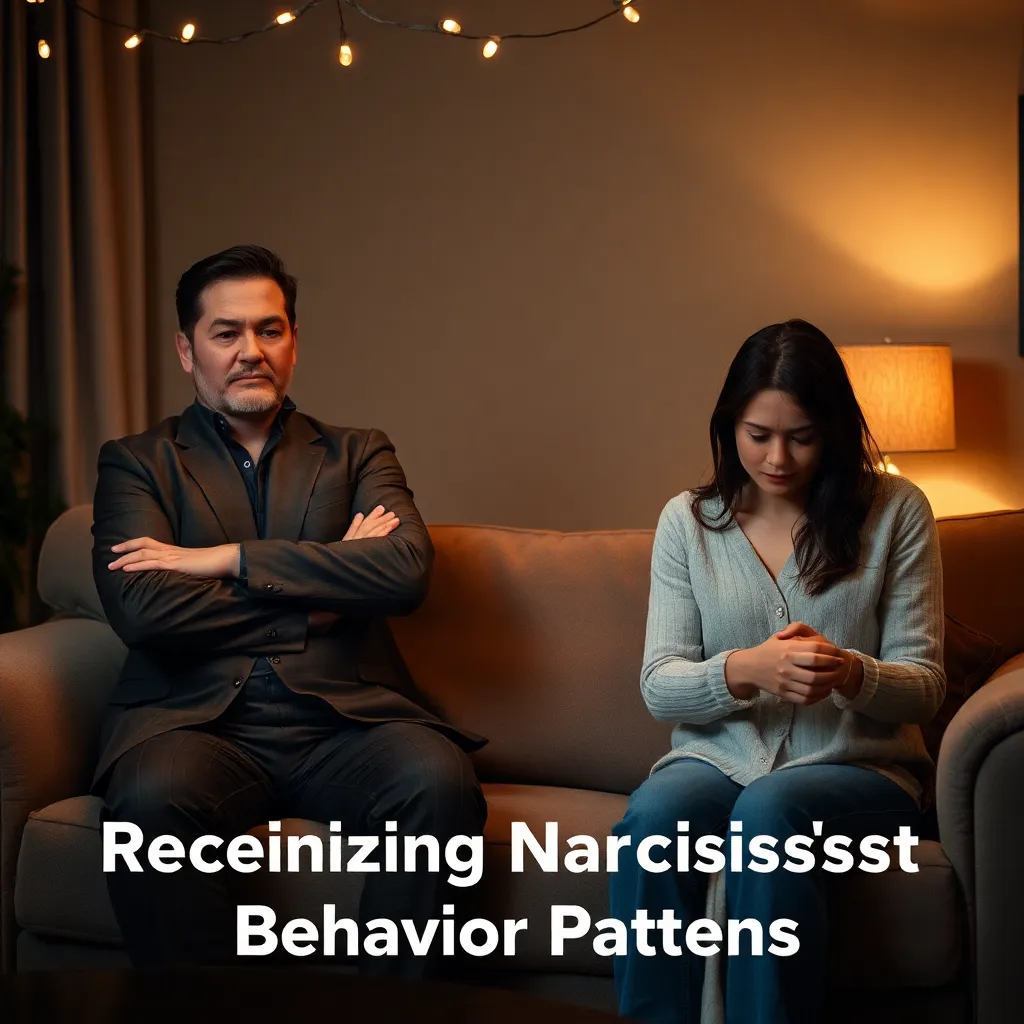Navigating a relationship with a narcissist can leave you feeling perpetually lost in a maze of confusion and self-doubt. It’s not uncommon to find yourself questioning your own reality, especially when they skillfully play the victim. Understanding the dynamics at play is crucial to regaining your peace of mind and setting healthy boundaries. When we delve into the tactics narcissists use, we empower ourselves with the knowledge to see through their manipulative behaviors.
In this article, we will explore 15 distinct ways narcissists can twist situations to portray themselves as the victim, leaving you feeling like the antagonist. By bringing these tactics to light, we aim to help you recognize the subtle and overt ways narcissists manipulate emotions and situations. Our goal is to provide you with practical insights that not only clarify these behaviors but also support your journey in fostering healthier relationships. As you read on, you’ll gain strategies to protect your emotional well-being and cultivate a sense of empowerment.
Through understanding these patterns, you will be better equipped to handle interactions with narcissists, whether they’re in your personal or professional life. It’s important to remember that you’re not alone in facing these challenges, and there are ways to navigate them effectively. By the end of this article, you’ll have a clearer perspective on how narcissists operate and how you can maintain your strength and authenticity amidst their attempts to manipulate. Embrace this opportunity to learn and grow, knowing that greater clarity and confidence await you.
1. Recognizing Narcissistic Behavior Patterns

Narcissistic behavior can be difficult to identify, especially when you’re emotionally involved. Often, these individuals exhibit patterns that include a constant need for admiration and an exaggerated sense of self-importance.
In many cases, you may notice that a narcissist will often shift blame onto others, portraying themselves as the victim. This tactic is designed to manipulate emotions and evade responsibility, leaving you feeling confused and guilty.
Consider a scenario where your partner frequently criticizes your efforts, yet when confronted, they claim you misunderstand their intentions. This is a classic example of *playing the victim*, turning the conversation around to make you question your perceptions and feelings.
Experts suggest that recognizing these patterns early can be crucial in managing such relationships. It’s essential to set and maintain clear boundaries, ensuring that your emotional well-being is not compromised.
Ultimately, understanding narcissistic behavior can empower you to make more informed decisions about your relationship. Staying informed and vigilant can help protect your emotional health and ensure more balanced interactions.
2. Manipulation Tactics in Relationships

In a relationship with a narcissist, you may find yourself feeling constantly confused and off-balance. This is often due to their use of various manipulation tactics designed to maintain control and deflect responsibility. For instance, a narcissist might shift blame during an argument, making you question your own actions and intentions. This leaves you feeling guilty, even when you haven’t done anything wrong, creating a cycle of self-doubt.
They often employ the tactic of gaslighting, causing you to question your perceptions and reality. Imagine a situation where your partner insists they never said something hurtful, even when you clearly remember the conversation. Over time, this can erode your confidence in your memory and judgment, making you more reliant on them for your sense of reality. As you doubt yourself more, their control over you grows stronger.
Another common tactic is the use of triangulation, where the narcissist involves a third party to create tension or competition. For example, they might compare you unfavorably to a friend or colleague to stir feelings of inadequacy. This not only keeps you on edge but also fosters dependency on their approval, as you strive to meet their impossible standards. Such dynamics can be exhausting and emotionally draining.
Being aware of these tactics is the first step in protecting yourself from their impact. By recognizing patterns of manipulation, you can begin to take back control of your narrative and emotional well-being. Remember, your feelings and perceptions are valid, and standing firm in this belief is crucial for a healthier relationship dynamic. Empowering yourself with knowledge and support can help break the cycle of manipulation.
3. The Art of Playing the Victim

Narcissists often master the art of playing the victim, turning situations around to portray themselves as wronged or misunderstood. In a real-world scenario, imagine a partner who constantly blames you for their shortcomings, subtly shifting the narrative to garner sympathy from others.
An essential tactic is their ability to invert reality, making you question your own perceptions and feelings. This can leave you feeling confused and frustrated, wondering if your concerns were ever valid in the first place.
Experts agree that this behavior is often a strategic move to evade accountability and maintain control in the relationship. It’s important to recognize these patterns early, as acknowledging them is the first step toward healthy communication and boundaries.
In such situations, maintaining your emotional balance is crucial. Practice self-reflection and ensure you’re not falling into the trap of internalizing their distorted narrative.
Ultimately, recognizing these tactics can empower you to set boundaries, creating a healthier dynamic. By understanding the signs, you can better protect your emotional well-being and nurture a more balanced relationship.
4. Emotional Blackmail and Narcissism

In the realm of relationships, emotional blackmail is a tactic that narcissists often employ to keep their partners in a constant state of confusion and guilt. This manipulation technique involves making their partner feel responsible for the narcissist’s emotional state, which can lead to a cycle of guilt and compliance.
Picture a scenario where a narcissist threatens to leave if their partner doesn’t agree with them, knowing well that their partner fears abandonment. By using such threats, they create an environment where their partner feels compelled to prioritize the narcissist’s needs over their own well-being.
To navigate these tricky waters, it’s crucial to set clear boundaries and recognize these tactics for what they are—manipulations rather than genuine emotional expressions. One strategy is to calmly communicate that you are open to a healthy discussion but will not respond to threats or emotional ultimatums.
Experts suggest that being aware of these patterns can help in resisting the pull of guilt and obligation. Developing a strong sense of self can empower you to challenge these tactics and maintain a healthier, more balanced relationship dynamic.
Ultimately, understanding and addressing emotional blackmail can change the course of a relationship, steering it away from manipulation and towards mutual respect and genuine connection.
5. Gaslighting: Twisting Perceptions

Narcissists are adept at the art of gaslighting, a psychological tactic where they subtly manipulate your perception of reality. This can leave you questioning your own judgment and even your sanity, fostering a sense of dependency on their version of events.
Consider a scenario where a partner insists that a conversation never happened, despite your vivid memories. Over time, these denials can erode your confidence in your own memory, making you more susceptible to further manipulation.
Experts suggest that gaslighting often begins with small distortions of the truth, gradually escalating into more significant deceptions. By making you doubt your experiences, a narcissist can maintain their control and victim persona, shifting the blame onto you.
To counteract gaslighting, it’s essential to keep a record of events, like a journal or a voice memo, to reinforce your reality. With evidence in hand, you can approach conversations with more clarity and confidence, reducing the narcissist’s influence.
In relationships with narcissists, the ability to twist perceptions serves their goal of maintaining control while portraying themselves as the wronged party. Understanding this tactic is the first step toward reclaiming your power and establishing healthier boundaries.
6. Feigning Innocence to Control

Narcissists often use the tactic of feigning innocence to manipulate those around them. By presenting themselves as the wronged party, they skillfully divert attention from their own transgressions and gain sympathy from others.
Imagine a scenario where a partner accuses a narcissist of not keeping a promise. Instead of owning up, the narcissist may feign surprise and claim they were never told about the promise, thereby shifting blame back onto their partner.
In these situations, the narcissist’s goal is to maintain control by making the other person question their own perceptions and judgments. This can lead to a cycle where the partner feels guilty and overcompensates, further solidifying the narcissist’s control over the relationship.
Experts suggest that recognizing this pattern is the first step in breaking free from its hold. By understanding that this behavior is a deliberate manipulation tactic, partners can begin to set clear and healthy boundaries.
Ultimately, the key takeaway is to trust your own instincts and perceptions. Building self-awareness and confidence can help you stand firm against manipulative tactics and foster a healthier relationship dynamic.
7. Blame Shifting and Its Impact

Narcissists often engage in blame shifting, a tactic that can leave you doubting your perceptions. This behavior involves them deflecting responsibility for their actions, making you feel like the cause of their misconduct.
Imagine a scenario where your partner arrives late and immediately places the blame on you for not reminding them of the time. Such instances can leave you feeling bewildered and burdened with guilt for something you didn’t do.
Experts note that this pattern is a common manipulation technique used to maintain control in the relationship. By constantly making you question your role, the narcissist avoids accountability, keeping the focus off their actions.
It’s crucial to recognize this behavior and establish clear boundaries to protect your emotional well-being. Practice asserting your reality with confidence, reinforcing that you are not responsible for their actions.
Understanding and addressing blame shifting is vital to preserving your self-esteem and the health of your relationship. By maintaining awareness and setting firm boundaries, you can prevent this toxic dynamic from taking root.
8. Creating Chaos for Sympathy

When narcissists create chaos, they often do so with the intent to elicit sympathy and attention from those around them. This behavior can manifest in sudden emotional outbursts or dramatic life changes, leaving partners and friends confused and concerned.
Consider a scenario where a narcissist suddenly claims to be overwhelmed with life’s pressures, despite showing no prior signs of stress. In such cases, they are often leveraging the chaos to become the center of attention, positioning themselves as the victim in need of support.
In relationships, this tactic can cause significant emotional turmoil, leaving the partner constantly worried about the narcissist’s well-being. The narcissist, in return, receives the emotional support and attention they crave, effectively manipulating the situation to their benefit.
Experts suggest that recognizing these patterns is crucial to breaking free from the emotional manipulation. With awareness, partners can address the situation more objectively, reducing the power of the narcissist’s chaotic tactics and fostering a healthier dynamic.
9. Exaggerating Hurt for Attention

In the intricate dance of relationships, narcissists often resort to exaggerating hurt to garner attention. This behavior is not merely a call for empathy but a strategic move to shift focus onto themselves, effectively playing the victim to manipulate their partner’s emotions.
Consider a scenario where a partner forgets a minor anniversary, and the narcissist responds as if it were a deep betrayal. The exaggerated response can make the other person feel guilty, compelling them to cater to the narcissist’s emotional needs, which reinforces the cycle of manipulation.
Experts suggest that narcissists are adept at amplifying their emotional responses to minor issues, making mountains out of molehills. This tactic not only draws sympathy but also diverts attention away from their own shortcomings, making it difficult for their partners to address real issues.
For those entangled in such dynamics, it is crucial to recognize this pattern and establish boundaries. By not immediately succumbing to the exaggerated display, partners can maintain a healthier emotional balance and avoid being manipulated.
Ultimately, understanding these behaviors can empower you to make informed decisions about your relationship. Recognizing when hurt is being exaggerated for attention is a step towards healthier interactions and genuine emotional connection.
10. The Role of Triangulation

Triangulation is a classic tactic that narcissists use to manipulate and control relationships. By involving a third party, they create a web of competition and jealousy, effectively shifting the focus away from their own behavior.
Imagine a scenario where your partner constantly mentions how much attention they receive from a colleague. This is a form of triangulation, designed to make you feel insecure and anxious, while the narcissist plays the victim, claiming they are simply being friendly or misunderstood.
Experts suggest that triangulation is not just about creating drama but also about reinforcing the narcissist’s sense of superiority. They thrive on the chaos they create, relishing the power they hold over others’ emotions and reactions.
To counter this, recognize the pattern and refuse to engage in the game of competition. Open communication with the third party can also help dismantle the triangulation, as often their involvement is unintentional or misrepresented.
11. Using Guilt to Gain Power

Narcissists often have a knack for turning situations on their head, making you feel like the one at fault. They may use your own sense of *guilt* against you to *gain power* in the relationship. Imagine a scenario where you’ve simply expressed a need or concern, only to find yourself apologizing for causing a disturbance. This tactic leaves you feeling *confused* and *guilty*, even when you’ve done nothing wrong.
By exploiting your *empathy* and desire to keep the peace, narcissists can maintain control. They might remind you of the times when you didn’t meet their expectations, turning it into an *emotional debt* that you feel compelled to repay. In these moments, it’s crucial to recognize that not every disagreement or need is a fault. An *expert in emotional manipulation*, a narcissist thrives on making you question your own *validity*.
Understanding this dynamic allows you to set *healthy boundaries*. When you start to feel overwhelmed by guilt, take a step back and ask yourself if the guilt is justified or a result of their manipulations. This self-reflection can help you break the cycle and reclaim your emotional space. It’s important to remember that feeling guilty doesn’t always mean you’re at fault.
Ultimately, the power of guilt diminishes as you become more self-aware and confident in your own perceptions. By staying mindful of these tactics, you can navigate the relationship with greater ease and *emotional resilience*. Remember, asserting your needs is not wrong, and your feelings are always valid. As you embrace this understanding, you take a step closer to a healthier and more balanced relationship.
12. Victim Stance in Conflicts

In the midst of a conflict, a narcissist might suddenly adopt a victim stance to deflect blame. This tactic can leave their partner feeling confused and guilty, often questioning their own perspective on the issue.
Imagine a scenario where a disagreement arises over finances. The narcissist might turn the tables by claiming they are the only ones who care about saving, painting themselves as the victim of their partner’s irresponsibility.
Experts suggest that this behavior stems from a need to maintain control by distorting the narrative. When a narcissist plays the victim, it provides them with a shield against accountability and shifts the focus away from their own actions.
To navigate such situations, it’s crucial to maintain a clear and balanced perspective. Recognize the pattern and calmly focus the conversation back on the issue at hand, rather than getting entangled in emotional traps.
13. Exploiting Empathy for Advantage

One of the subtle yet effective tactics narcissists use is exploiting their partner’s natural empathy for personal gain. In relationships, an empathic partner often desires to help and heal, creating an ideal scenario for a narcissist to play the victim and manipulate emotions.
Imagine a scenario where your partner frequently shares tales of past injustices, subtly implying they need your emotional support. This is a classic play on your empathy, making you feel responsible for their emotional state, and often leads to you prioritizing their needs over your own.
Experts suggest being aware of this dynamic and recognizing when your empathy is being used against you. It’s crucial to maintain personal boundaries and not allow your compassion to be a tool for manipulation.
By understanding these patterns, you can protect yourself from emotional exploitation. Ultimately, maintaining a balance between compassion and self-care ensures that your empathy is a strength rather than a vulnerability.
14. The Cycle of Narcissistic Abuse

The cycle of narcissistic abuse is a deeply entrenched pattern that can leave victims feeling confused and drained. It typically involves phases of idealization, devaluation, and then discarding, which can repeat over and over again. In the idealization phase, the narcissist may shower their partner with affection and attention, creating a false sense of security. This is often followed by a sudden shift to devaluation, where the narcissist criticizes or undermines their partner to instill doubt and insecurity.
During the devaluation phase, a narcissist might blame their partner for all relationship issues, portraying themselves as the victim. This tactic can make the partner feel guilty and responsible, drawing them deeper into the cycle. Friends and family might notice the change in the partner’s behavior, often seeing them become more isolated or anxious. It’s crucial for those involved to recognize these signs and understand they are not to blame for this manipulation.
Expert psychologists note that narcissists often lack genuine empathy, making it easy for them to manipulate emotions without remorse. The cycle can be difficult to break, as the victim may cling to the hope that the relationship will return to the idealization phase. However, understanding this pattern is the first step toward reclaiming one’s power and emotional well-being. Support groups or professional therapy can provide invaluable resources for those trying to navigate this complex dynamic.
Breaking free from the cycle requires courage and a solid support network. It’s important to set boundaries and prioritize self-care, despite the challenges.
By acknowledging these patterns and taking proactive steps, individuals can begin to heal and move towards healthier relationships.
15. Breaking Free from Manipulation

In the aftermath of experiencing the cycle of narcissistic abuse, finding your way back to emotional freedom can seem daunting. However, understanding the manipulation tactics used by narcissists is the first step towards reclaiming your power and breaking free from their influence.
Consider a situation where a partner constantly blames you for their own mistakes, leaving you feeling perpetually guilty. Recognizing this as a classic manipulation tactic can help you start setting healthy boundaries and protect your emotional well-being.
It’s essential to surround yourself with a supportive network of friends and family who can offer perspective and encouragement. By sharing your experiences and feelings with trusted individuals, you can gain clarity and the strength needed to resist the narcissist’s attempts to manipulate you.
The insights of therapists and relationship experts suggest that practicing self-compassion and self-care are crucial in this journey. Engaging in activities that nurture your soul and confidence can fortify your resilience against the narcissist’s attempts to control you.
Ultimately, breaking free from manipulation is not just about leaving a toxic relationship—it’s about rediscovering yourself and building a life grounded in authenticity and self-respect. With each step towards independence, you reclaim a piece of your identity, empowering yourself to forge healthier, more fulfilling connections in the future.
Conclusion: Creating Beautiful Outdoor Spaces
In navigating the complex dance with a narcissist who plays the victim, we’ve explored 15 key behaviors, from blame-shifting and emotional manipulation to gaslighting and creating chaos. Recognizing these patterns is crucial for safeguarding your emotional well-being. As you absorb these insights, consider taking an immediate step by setting clear boundaries in your relationships. This empowers you to reclaim your peace and fosters healthier interactions.
Now, embrace a proactive approach: save this article as your go-to guide. Doing so ensures you have a ready reference to navigate encounters with manipulative behaviors and bolster your relationship resilience. Remember, the journey to thriving relationships begins with understanding and awareness.
Looking forward, envision a future where your relationships are built on mutual respect and authenticity. With knowledge and action, you are well on your way to transforming your connections into sources of joy and support. Keep this article bookmarked, and revisit it whenever you need a reminder of your strength and the path to healthy relationships. Together, let’s pave the way for a happier, more fulfilling relationship journey.
